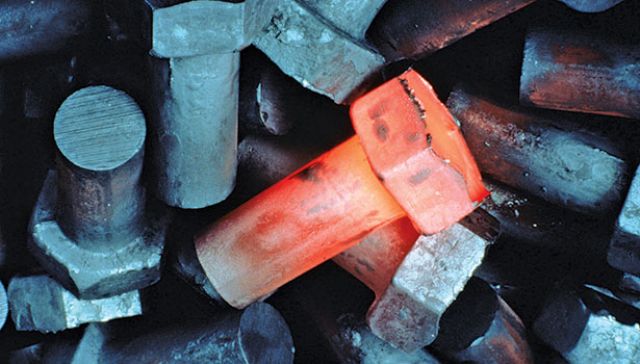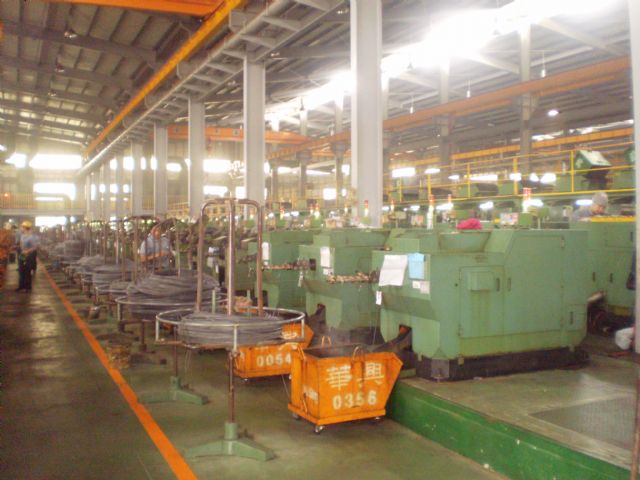Taiwan Fastener Makers Focus on Advanced Heat Treatment Standards to Tap Automotive Segment
CQI-9 HTSA is increasingly applied to ensure quality of thermally treated fasteners
2015/05/07 | By Steve ChuangCompiled by STEVE CHUANG
In response to the persistently growing global automotive industry, ever more Taiwanese fasteners have actively ventured into the segment as a savvy strategy to secure more sustainable development, with some focusing on introducing advanced heat treatment standards to better meet requirements by global carmakers.
According to Taiwan Industrial Fastener Institute (TIFI), an association of local makers in the sector, around 25% of Taiwanese fastener manufacturers are capable of supplying quality-approved automotive fasteners worldwide for the time being, and the proportion is expected to surge to 40-50% in the next five years, based on steadily increasing global car production. IHS Automotive, a global automotive industry researcher, forecasts worldwide car sales to exceed 100 million units in 2018, and this will surely bring considerable business opportunities to the Taiwanese fastener industry.
K.B. Yo, project manager of Metal Industries Research & Development Centre (MIRDC), a Taiwanese R&D body, says that heat treatment, which reinforces durability, structural strength to enhance added-value, is a critical process that determines a supplier’s qualification to be an OEM maker for leading carmakers, adding that “generally, Taiwan suppliers are skilled at upstream processes as forming, threading and heading, but overlook heat and surface treatment due to relatively high costs. They circumvent such issue by cutting corners—subcontracting heat treating and electroplating firms, who can handle the jobs cheaply but without assuring stable quality.”

In essence, Yo states, Taiwan fastener suppliers can skillfully handle heat treatment to turn out quality automotive fasteners meeting world-class automakers’ standards; however, prolonged neglect and underdeveloped quality inspection systems for heat treatment have become major obstacles to effectively explore the OEM (original equipment manufacturing) segment.
To overcome such hindrance, some of Taiwanese fastener makers have introduced the American AIAG (Automotive Industry Action Group) CQI-9 (Continuous Quality Improvement) HTSA (heat treatment system assessment) into the industry, aiming to build Taiwan into a global leader in the automotive fastener segment.
“Once successfully passing the CQI-9 assessment, Taiwan fastener suppliers can then directly supply automotive fasteners to leading automakers, which would, most importantly, double export prices to NT$100-200 per kilometer from the current NT$50-100 in the AM segment,” he says. “Being CQI-9 qualified enables Taiwan makers to right away enhance the value of their fasteners to make them stronger global competitors.”
Birth of AIAG
Set up in 1982 by U.S.’s big three automakers, namely General Motors, Ford Motor Company and Chrysler, AIAG is a non-profit organization providing an open platform for members to jointly work to develop new technologies. The AIAG has successfully wielded plenty of influence over the global automotive industry—setting up quite a few quality inspection standards and training courses for industry insiders. Currently, an estimated 1,500 voluntary companies within the AIAG are developing optimal solutions to standardize supply chains in the sector.

CQI, introduced by the AIAG, is a quality management concept that stresses the importance of efficient, effective processes under corporate organizational efforts and systematic management—contending that everything can be improved through daily work and experimentation in-house.
Based on the CQI core concept, CQI-9 HTSA contains a series of inspections and audits related to heat treating equipment, processes, personnel, output quality and quality control systems, and, notably, the assessment support processes defined in ISO/TS 16949 standards. In other words, the quality management process helps makers, who have been ISO 9001 and TS 16949 certified, to introduce and implement CQI HTSA in production.
CQI-9 Imperative
Responding to why CQI-9 is helping Taiwan fastener makers, Yo says that, compared with JIS in Japan, CQI-9 is widely adopted among leading European and North American automakers; so it is imperative to be CQI-9 HTSA certified to become OEM suppliers to automakers.
From another viewpoint, adopting CQI-9 can help Taiwan makers continually improve heat treatment technique. Yo says that, to achieve high capacity, some producers may place too many fasteners at once in a heat treatment oven, causing a very small portion of maybe 1 to 2 pieces to get stuck, hence failing to be properly heat treated.
“Making automotive fasteners safe hinges on carrying out proper heat treatment at specified period and temperature to achieve durability, hardness and structural strength. Without maintaining time and temperature properly during heat treatment, a fastener then will be unsafe for any vehicle,” Yo stresses. “Needless to say that keeping the proper conditions is a common problem among most Taiwan fastener makers and heat treating companies.”
“CQI-9 instructs factories to back up time-temperature diagrammatic charts and related data on daily operation of heat treating ovens, enabling checking such parameters when defective fasteners are found. Consequently, they must try to improve whole production lines by upgrading equipment to minimize poor quality. In short, CQI-9’s strict requirements for data back-up and the core concepts of CQI help to instill in suppliers, workers correct attitudes related to quality, as well as be accountable,” he adds.
“As said, proper heat treatment decides the quality and safety of automotive fasteners. The discovery, return of defective fasteners typically result in considerable penalty—calling for suppliers to compensate ten times the cost of fasteners in question. To avoid such consequences and assure product quality, Taiwan makers of automotive fastener tend to send abroad semi-finished fasteners for proper heat treatment, instead of risking business with local subcontractors,” Yo says. “Such scenario discourages fastener suppliers to venture into the OEM segment, hence compromising local heat treating companies’ chances to win orders.”

“By carrying out CQI in-house and become CQI-9 HTSA certified, Taiwanese suppliers will hopefully become more confident and capable of handling such risky orders, and Taiwan’s heat treating sector will also progress in process technology and business operation.”




